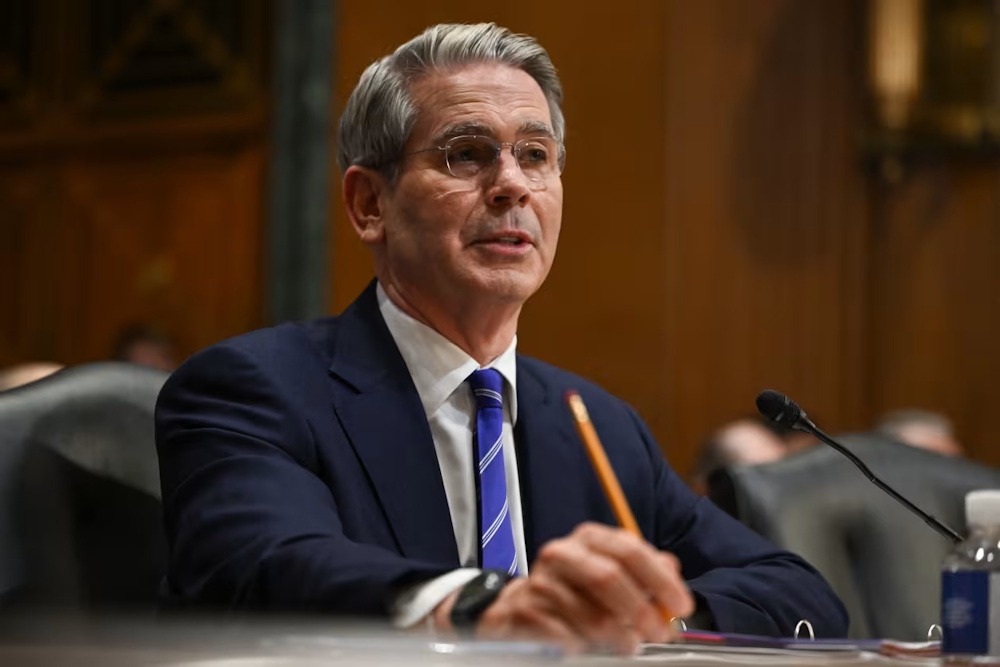US Treasury Secretary Scott Bessent’s intervention in Argentina appears to prioritize the interests of his associates over the welfare of the nation, according to allegations made by economist. Numerous hedge funds that have previously collaborated with the Treasury Secretary maintain significant stakes in Argentine bonds, and Washington’s US$20-billion swap package aims to protect their returns. Reports says that the financial assistance will advantage “investment firms such as BlackRock, Fidelity and Pimco, which are heavily invested in Argentina, as well as investors like Stanley Druckenmiller and Robert Citrone, who collaborated with Bessent during his tenure investing for George Soros.” Argentina is set to confront debt obligations in January and July of the upcoming year, totaling approximately US$8.5 billion in bonares and globales bonds, with an estimated 85 percent held by private investors.
Economist Paul Krugman observed that “some US hedge-fund billionaires, personally close to Bessent, bet big on Milei and bought Argentine bonds.” Krugman noted that “the bailout package is unlikely to succeed in revitalizing Argentina’s economy and is probably insufficient to salvage Milei’s political standing.” However, it could provide sufficient time for Bessent’s associates to withdraw a significant portion of their funds prior to the collapse of the Argentine economy. Reports says that Rob Citrone’s Discovery Capital Management “earned returns above 20 percent this year and increased its positions in Argentine bonds after market declines in early September.” At the conclusion of September, Bessent disclosed via social media that the US Treasury was engaged in discussions regarding a financial assistance package with Argentina, which encompassed a currency swap valued at US$20 billion. The post also referenced bond purchases as a component of the financial rescue strategy.
“One of the individuals who encouraged Bessent to take action on Milei’s behalf is Bessent’s longtime associate and former colleague Rob Citrone, a hedge-fund billionaire who made significant investments in Milei’s success and acquired additional Argentine assets just prior to Bessent’s announcement,” Krugman noted. Another connection links Bessent to Argentina via Tania Reif. According to a report Reif held a position at Soros Fund Management, where she operated under Bessent, who was then the firm’s Chief Investment Officer and a key figure in its influence. During that period, Reif contributed to a team of analysts and portfolio managers focused on currency and sovereign bond strategies within emerging markets—an area where Bessent had already established his reputation.
Two significant events solidified Bessent’s reputation in global finance. The first was “Black Wednesday” in 1992, during which Soros’s fund took a position against the pound sterling, successfully outmaneuvering the Bank of England and generating approximately US$1 billion in profits. The second occurred in 2013, when he realized a profit of about US$1.2 billion by speculating on the depreciation of the Japanese yen. Bessent’s track record indicates his expertise in currency trading, though the efficacy of the US Treasury’s recent operation—purchasing pesos while divesting dollars—is yet to be determined. Currently, Argentines exhibit a greater preference for dollars compared to the Treasury’s interest in pesos, prompting analysts to question whether Bessent will succeed in stabilizing the Argentine market. His association with Argentina traces back to the 1990s, during his tenure with George Soros, who invested heavily in IRSA, the firm that owns many major shopping centers and iconic structures in Buenos Aires. Soros’s investment, facilitated by a deregulatory framework akin to today’s, was rooted in Law 21,526—enacted during Argentina’s military dictatorship—which reduced state oversight of the financial system and shaped the environment that continues to influence Argentina’s economy.

